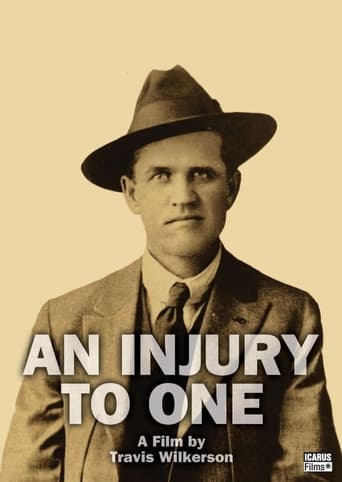geomylo
One of the best documentaries i have ever seen. Totally 99% for all the brave US occupiers. Saw it in a festival in Athens back in 2004 (i think that was the year) and still remember it. To me it was an introduction in early 20th century American labor history, for which i knew nothing about.Archival footage mixes with deftly deployed inter titles. The music is great as well. The lyrics to traditional mining songs are accompanied by music from William Oldham, Jim O'Rourke, and the band Low, producing an appropriately moody, effulgent, and strangely out-of-time soundtrack. The result is a unique film/video hybrid that combines painterly images, incisive writing, and a bold graphic sensibility to produce an articulate example of the aesthetic and political possibilities offered by filmmaking in the digital age. The way the film links the history of the mine with the present environmental nightmare in the area is charismatic.Since then i am a William Oldham fan as well...I will try to purchase the DVD now, off i go...(https://www.facebook.com/georgia.mylonaki)
Ryan Shaffer
I happened to catch this film at the Sundance Film Festival while volunteering there about five years ago. I must admit that when I think back on that time, and the 20 or so films that I watched, this is the one that most sticks out in my mind (besides The Cream Master Cycle 3 and that says a lot!). It's so unique in it's form that you can't take your eyes off the screen not to mention that the little-known subject matter is absolutely fascinating... and devastating. It's too bad that reviewer's like "littlesiddie" can't get beyond there own politics and self "pretensions" to admit that this film has merit. They would probably prefer that the film place the blame on the mine workers for the downfall of their town and land. Is that the problem with the left? They care about the little people, the underdog, real democracy and justice? After decades of neglect the exploited people of this community are finally getting some justice, but not for littlesiddie...this is a travesty. His corporate buddies are being unfairly represented. Is that about right? You're concerned that some dead corporate elites are being wrongly exposed? Give me a break.
LanceThruster
I would have to say that I "enjoyed" this production very much because I felt it was truthful regarding what happened during that time and the aftermath. Especially telling was the evolution of the Sedition Act from a tool of local control to one used nationally. As far as I was concerned, everything worked for me to set the tone the material deserved; the music, and protest songs, the narration, and the use of photographs and screen text. I cannot remember the line exactly but it went to the heart of what was being fought for; a recognition of unsafe condition for the miners, a lack of fairness in wages, and the denial of the right to bargain collectively. The line was something along of this; "How can we discuss if we cannot speak?" It was meant to highlight that the miners were not even allowed to talk about the issues at hand because it was determined that for a strategic war industry (copper mining), any protest or dissension hurt the war effort and was tantamount to treason.I think there are quite a few parallels to what is taking place today. The Patriot Act comes to mind as well as mainstream media acting as administration lackeys.
littlesiddie
I finally saw this documentary last night at a local radical bookstore. I had read a fairly glowing review of it by J. Hoberman in the "Village Voice" about a year or so ago and had been curious to see it. Turned out to be a real dud. It was essentially an art school project. And it showed it in spades. It was ponderous, pretentious and preachy (please excuse the alliteration). The thinness of the material and the fact that the filmmaker was trying so hard to make the murder of Frank Little to be so very representative and monumental only showed how lazy he was in doing his homework. And the filmmaker had the unmitigated gall to slowly display the lyrics to 4 different labor songs, one word at a time. Total arrogant crap. And you wonder why the Left has lost so much credibility. This documentary made me very curious about many of the other details of the labor situation in Butte, Montana, at the time of the Little's murder. Personal journals, diaries and papers published by the workers themselves would probably be good source material. That would give me more of a feel for the everyday life of these people, not the fact that Frank Little made a brief appearance in their midst, stirred them up and was then summarily executed by the powers-that-be for his trouble.


